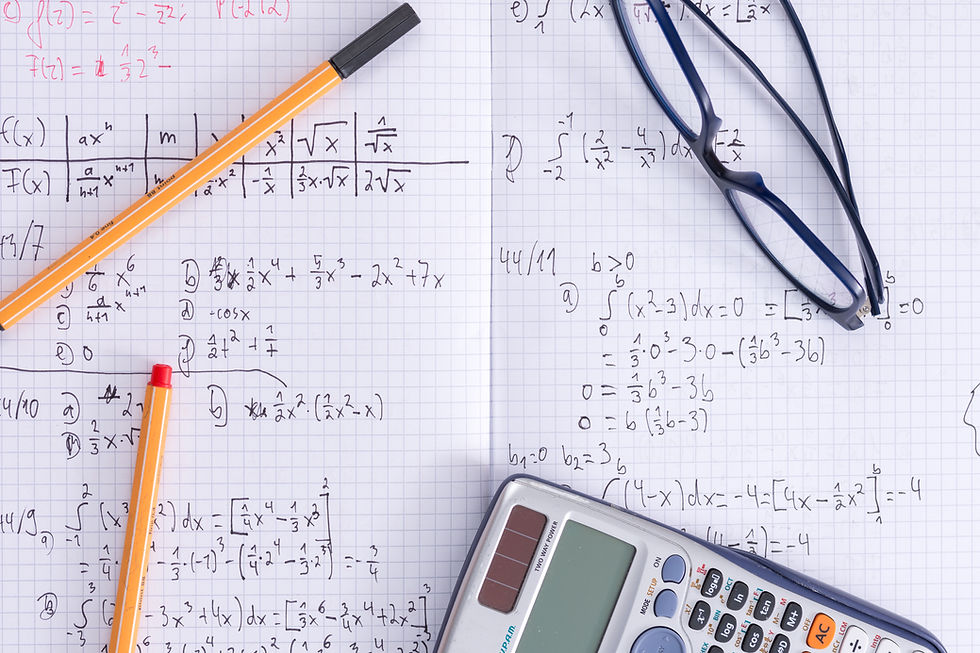How to get an 800 in the math section of the SAT?
- Apr 13, 2023
- 3 min read
Updated: Jun 22, 2023

Getting a perfect 800 on the math section of the SAT is no small feat. But with the right preparation and approach, it's definitely achievable. Here are some tips to help you get that perfect score:
Master the Fundamentals
The first step to acing the math section of the SATs is to master the fundamentals. This means ensuring that you have a solid understanding of algebra, geometry, and trigonometry. If you struggle with any of these areas, be sure to spend extra time reviewing and practicing until you feel confident.
Know the Format of the Math Section
Familiarizing yourself with the format of the math section of the SATs can help you prepare more effectively. The math section consists of two portions - a calculator section and a non-calculator section. The calculator section has 38 questions, while the non-calculator section has 20 questions.

Learn the Question Types
The math section of the SATs includes a variety of question types, including multiple-choice questions, grid-ins, and student-produced response questions. Make sure you understand the different question types and practice answering each type so that you feel comfortable with all of them.

Time Management
Time management is crucial when it comes to acing the math section of the SATs. You have 80 minutes to answer all the questions, so it's important to pace yourself appropriately. Don't spend too much time on any one question and be sure to move on if you're unsure of the answer. This will ensure that you have enough time to answer all the questions.
Practice, Practice, Practice Testing the SAT Math Section
One of the best ways to improve your score on the math section of the SATs is to practice,practice, practice. Take practice tests, review the questions you got wrong, and keep practicing until you feel confident in your abilities.

Use Your Calculator Wisely
While a calculator can be a helpful tool, it's important to use it wisely. Don't rely on your calculator for every question, as this can slow you down and waste valuable time. Use your calculator strategically for more complex calculations.
Look for Patterns
Many of the questions on the math section of the SATs include patterns or shortcuts that you can use to solve them more quickly. Look for these patterns and use them to your advantage.

Don't Panic
It's easy to panic when you come across a difficult question or when time is running out. But panicking will only make things worse. Stay calm and focused, and trust in the preparation you've done. Remember, you can do this!
Be Mindful of Units
When it comes to answering questions that involve units of measurement, be sure to pay close attention to the units given in the question. If you're not careful, you could end up with an incorrect answer simply because you used the wrong unit of measurement.

Check Your Work
Finally, when you've finished the math section of the SATs, take a few minutes to check your work. Look for careless mistakes or typos and make sure that you've answered every question. Double-checking your work can help you catch any errors before it's too late.
In conclusion, getting a perfect 800 on the math section of the SATs is definitely achievable with the right preparation and approach. Master the fundamentals, familiarize yourself with the format and question types, manage your time effectively, practice, use your calculator wisely, look for patterns, stay calm, be mindful of units, and check your work. With these tips in mind, you'll be well on your way to acing the math section of the SATs.



Thanks for making this possible.. Matt